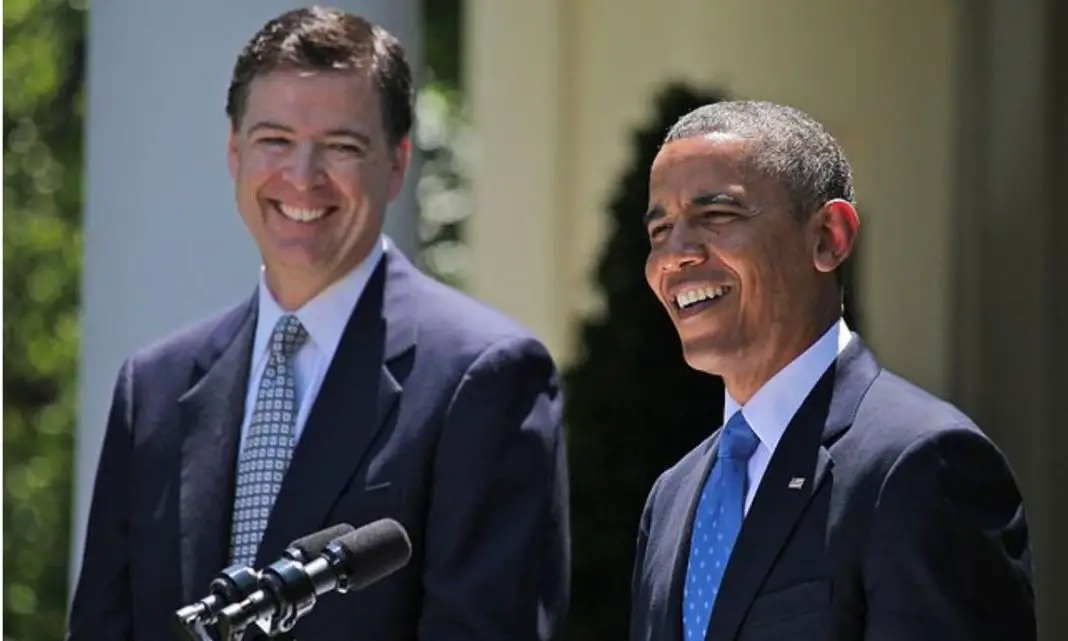Newly declassified documents show how former FBI Director James Comey relied on a Columbia University law professor as his off-the-books media handler, a setup that even the professor admitted was far from standard. Daniel C. Richman, identified as Comey’s confidant and fixer, told Senate Judiciary Committee staffers in a June 2017 phone call that he served as one of Comey’s personal attorneys, conceding it’s “not normal for a law professor to represent the former Director of the FBI,” according to the transcript released Thursday.
The interview, led by Jason Foster, then-chief investigative counsel for Sen. Chuck Grassley, was labeled “extraordinary” and “bizarre” by Foster in comments to the Daily Caller News Foundation, highlighting the unusual entanglement between academia, law enforcement, and the press.
This call came just days after Comey’s high-profile testimony where he denied leaking classified intelligence directly or through proxies, but the transcript paints a different story of evasion and deflection.
First published by reporter Catherine Herridge, the transcript details how Richman confirmed passing Comey’s notes on Trump interactions to the media after Trump’s firing of Comey, yet stonewalled on whether he kept copies.
During the exchange, Richman snapped at staffers, saying something like “You do things by your rules” and “I do things by my rules,” adding defiantly, “If you guys want to send me another letter, send me another letter.”
Richman openly declared, “I am one of his lawyers,” referring to Comey, noting his dual role as legal shield and media conduit. He described receiving a “packet” of documents from Comey as his lawyer, admitting, “yes I’m being vague on purpose,” in a move that reeks of deliberate obstruction.
When pressed on potential subpoenas, Richman warned he would invoke attorney-client privilege to a “substantial extent,” effectively daring Congress to push further. The conversation wrapped up awkwardly, with Richman claiming memory lapses because he was in the midst of his “morning exercises,” a flimsy excuse that only adds to the farce.
Richman also mentioned that a Mueller staffer had supposedly addressed the committee’s questions, acknowledging that too was not normal, while insisting he was still aligned with the FBI post-Comey’s ouster.
These details emerge from documents released by FBI Director Kash Patel, first covered by Just The News and fully detailed by The Federalist, tied to the Arctic Haze probe into classified leaks to the press.
Arctic Haze zeroed in on four articles, including an April 2017 New York Times piece that traced back to Comey himself through his chain of command. Records show Comey and Richman discussed the classified intel in January 2017, followed by Richman’s chat with a Times reporter, raising red flags about unauthorized disclosures.
Richman dodged accountability, telling agents he was sure “with a discount” he did not tell Schmidt about the Classified Intelligence, a hedging response that screams guilt. Comey had elevated Richman to a special government employee with Top Secret clearance in 2015, tasking him with “Going Dark” duties: bypassing the FBI press office to feed info directly to media allies.
Even after leaving the FBI, Richman kept up the media contacts, while Comey used him and bureau underlings to plant a flattering New York Times narrative on his handling of the Clinton email saga and the Trump-Russia hoax.
That Times story portrayed Comey as navigating “uncharted and perhaps unwanted territory, as he made what he thought were the least damaging choices from even less desirable alternatives,” a whitewash now demolished by declassified files.
But the truth is darker: Comey green-lit false Russia-Trump collusion claims rooted in Clinton campaign dirt, ignoring FBI evidence that it was a diversion from her email crimes. The Times labeled Richman merely as “a longtime confidant and friend of Mr. Comey’s,” omitting his FBI role, while quoting him: “Jim sees his role as apolitical and independent,” and “The F.B.I. director, even as he reports to the attorney general, often has to stand apart from his boss.”
It claimed Comey ran the Trump probe “by the book, with the bureau’s traditional secrecy,” not revealing it until March 2017, “long after the election”—contradicted by the paper’s own October 2016 report on the investigation.
Arctic Haze confirmed Richman provided more than his quoted lines, pointing to deeper collusion between Comey’s circle and the liberal media. Comey stayed silent on comment requests via his publisher, while the FBI admitted authorizing three briefings for Times reporters on the Clinton probe, involving scandal-plagued figures like Peter Strzok and Lisa Page.
These sessions on March 10, 30, and April 10, 2017, saw the Times reveal possession of classified info at the second one, with conflicting recollections from Strzok and Page on discussions. Despite the leaks, Arctic Haze shut down without charges, a classic deep state cover-up protecting their own.
The classified intel in the Times piece involved Russian claims of improper Clinton-Lynch contacts on the email probe, described as “Classified Information which directly related to whether or not the Attorney General should have been recused from the Midyear Exam investigation.”
Comey cited this intel—calling it a hacked Democratic document raising Lynch’s independence questions—as influencing his Midyear closure, per his Arctic Haze interview.
Full details from John Durham’s 2023 report annex, released July 31, expose the intel as alleging Clinton’s plot with “special services” for “scandalous revelations” on Trump’s “Russian Mafia” ties.
Durham noted this “Clinton Plan” was hidden from some Crossfire Hurricane investigators, leaving one “visibly upset and emotional,” feeling betrayed as he “had never been apprised of the Clinton Plan intelligence.”
Though central to Comey’s decisions, the FBI deemed the Russian intel unreliable, yet failed to fully examine related thumb drives, per recent declassifications—a glaring oversight that fueled the anti-Trump witch hunt.

